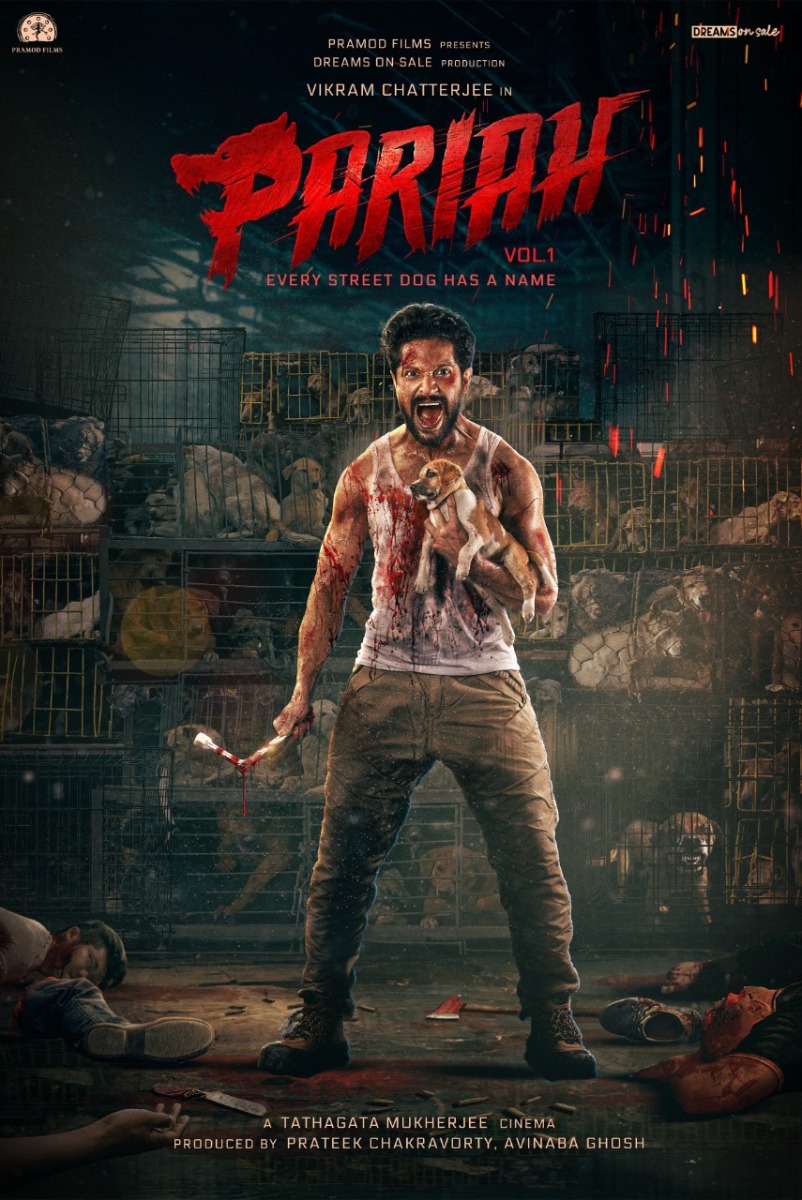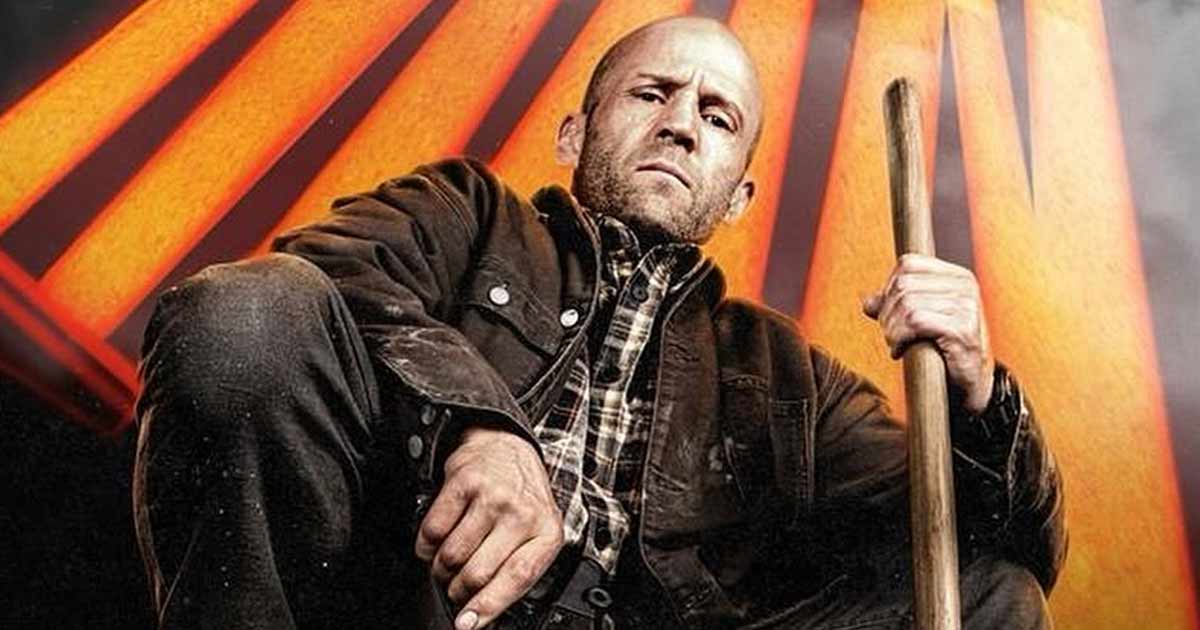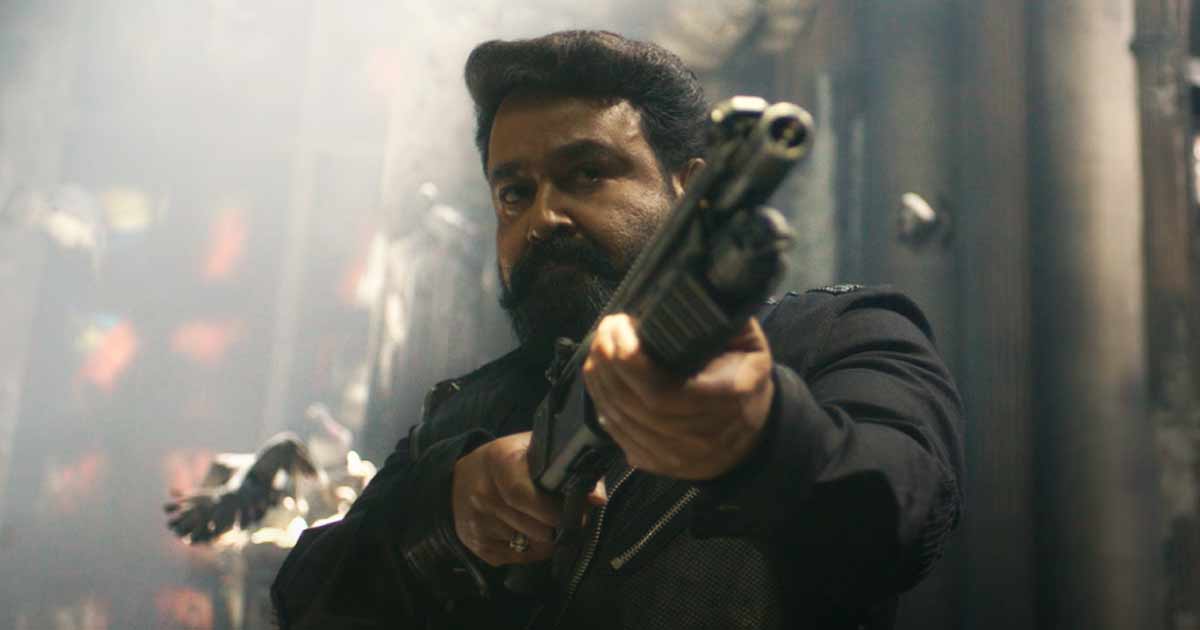
A Sirius dogfight! – Beyond Bollywood
Writer Antara Banerjee, director Tathagata Mukherjee’s quasi Korean gore-like crime drama hammers home its message of animal welfare. Stellar acts by Vikram Chatterjee, Angana Roy, Soumya Mukherjee and Sreelekha Mitra.
Rating: ⭐️⭐️⭐️ (3 / 5)
Read backwards and God would come out as dog. A dog is a man’s best friend. A dog is more loyal than man. For eons, we’ve praised the pooches with the above words. They are too cliche to use in a film. So, writer Antara Banerjee, director Tathagata Mukherjee draw our attention to the stars. Pariah or Pariah Vol.1: Every Street Dog Has a Name [2024] opens with an insight into Sirius, the bright star, also known as the dog star as it is part of the Canis Major Constellation.

Slightly tilt the image of Canis Major, and a hunter figure would appear. In India, we call it lubdhak, perhaps a Sanskrit word for hunter. It is also known as dog. In a nation, that has religiously pursued astronomy, Antara and Tathagata rightly underline the cultural significance of a dog.
Though not mentioned in the film, in the Mahabharata, Sirius is equivalent to Svana, the dog of Prince Yudhishthira.
The mythology/astronomy builds an instant cultural connect with the audience. Ironically, in a nation that worships demigods, some mete out brutal treatment to animals. Pariah means social outcast. In the film, the leading unnamed hero is one, but the bigger pariah is the stray dog. Whilst we love foreign breeds as pets, the stray pooch seldom gets that love or attention. A casteist society doesn’t spare poor animals too. Pariah [2024] makes a compassionate plea for the poor pooches.
Set in Bengal, an unnamed man [Vikram Chatterjee] comes across as a sociopath. He works hard in a factory, but is least interested in talking to humans. He twists the arm of a colleague, who tried to get too friendly. The man often eats at a humble local eatery, being operated by an old woman. One day, he senses someone at his feet. It turns out to be a little black pup. Our man doesn’t smile, but he offers him a morsel. Okay, so our sociopath is not all cold. He cares for animals, especially dogs.
A tragedy ensues, but there is no sign of the missing pup. In his heart, our man is convinced that the puppy is alive and it needs to be rescued. His puppy-search leads him to a local dark ‘meaty’ world. The chief butcher here is one Nanda [Soumya Mukherjee], a psychopath.
The nature of this meaty business is naturally condemnable, but is the brutal sense of justice acceptable? Are the makers resorting to rabble rousing to address this menace? Pariah is bound to polarize views here. Hey, but this is Kaliyuga. If a Durga takes the form of a brutal Kali to kill demons, then can a dog-savior hero be faulted for brutally eliminating monsters like Nanda? We found one thing bizarre. Watching a fellow animal being slaughtered usually sets panic among the other caged beings. When our hero brings these monsters to justice, there hardly is much reaction from the pooches. It’s almost as if they are silently cheering the violence. Rabble rousing?
Last year, we had actor-director Anshuman Jha’s Lakadbaggha [2023], where his character goes searching for a missing stray. That film, though, unmasked illegal animal trafficking, whereas Pariah raises an alarm over brutal meaty business. Jha adopted a more realistic approach. Tathagata Mukherjee’s film veers more towards a Korean gore-like action drama to draw its target audience. The film claims that it is based on certain true events. Though massy in its appeal, it stays clear of any over-the-top action.
Alright eating dogmeat is illegal in most parts of India, a sin. But what about the right to live for fish, birds, cattle, caprine creatures. The Indian Constitution grants the right to food whereby citizens can consume meat whose sale isn’t illegal. Our North East brethren will not be quite amused by a certain stereotype. Or is Tathagata subtly targeting the Red Dragon?

In Pariah, the moral argument isn’t raised by the hero per se, but it’s the butcher who questions the society. “Don’t blame me, blame the society that desires meat. No one battles an eyelid when chickens are slaughtered. It’s purely a case of demand and supply. Tomorrow, if humans start eating humans, I will chop them too,” Nanda literally screams on the face of the pure soul Kamalini [Angana Roy], who works in an animal welfare NGO. He, however, is mindful of not mentioning fish, mutton. Ah, that would have resulted in riots in Bengal. The butcher also throws in a bit of philosophy. “In this brutal world, you either survive or end up as meat.”
As barbaric as he is, but Nanda’s words are likely to hit on your senses. The veg vs non veg debate is more complicated now as we have vegans too. If the collective conscience of the society awakens, a law can ban meat/bird consumption but will there be voices against using animals in science labs?
Shut you’re eyes to the gore, and Pariah presents plenty of food for thought. This bloody film perhaps also marks a change in Bengali cinema moving from soft, slice of life stories to action, noir. The quality writing, and Tathagata’s astute direction keeps the viewer highly engaged. The director has quality cast at his disposal. We’re introduced to these talents for the first time.

Vikram Chatterjee has this stone-cold look all throughout the film. The bulk frame, beard, deep somber eyes, it’s partly reminiscent of Hugh Jackman’s Wolverine avatar from Logan [2017]. There is some striking similarity between the protagonist and the antagonist. Both carry past scars. Both don’t eat non-veg food. A real surprise for Nanda, but then again, if you slaughter on a daily basis, the sight of cooked meat can trigger the bloody memories. They are equally brutal in their actions. The bad man doesn’t shy form saying, “You’re no different. You, too, are a butcher”. Our protagonist is quick to retort, “Deer eats grass. Tiger eats deer. That’s nature but it’s only humans who are sick in the mind.” So, is eating non-veg food a sickness?
Chatterjee never drops the intensity. Jeez, he doesn’t even smile when the gorgeous Kamalini is hitting on him. He simply doesn’t show much affection for humans, and he’s restrained in his feelings for pooches too. Dare to harm a voiceless creature, and our hero will maul you like a wolf. The director called him his Dark Knight. You wonder who really is this man? Is he even from this planet? The closing visuals of Pariah give some insight into the man. Chatterjee is simply flawless in his act. Having met him, he impressed us with his Hindi too. He sure has potential to be a pan India action hero.
What do we say about Soumya Mukherjee? Phew, he scared the s** of us. He’s done rom-coms before. This butcher avatar will shock his fans. Though called Nanda, but the beard perhaps suggests that his real identity is different. The film makers wisely stay clear of any stereotypes. Mukherjee transforms himself into this monster, triggering the fear of the devil in audience’s heart. This evil act is as perfect as it can be. Over the years, there is dearth of villains in Hindi cinema. After this master performance, Bollywood can look upon Soumya as the desired on-screen evil.

The ferocity at which Nanda comes at poor Kamalini would break any one down. You heart goes out to young Angana Roy. She is the lone pure soul in this dark world. Her innocence, her love for animals is far more genuine than her NGO head [played by Sreelekha Mitra]. Roy partly springs back memories of a young Moushumi Chatterjee. The tears all the more justify the comparison. She is so innocent that it makes her unfit for the job. Imagine, here is a girl from NGO who is tasked to visit the premises of a cruel couple, who allegedly have been torturing their Golden Retriever. She quickly senses that this doctor is dangerous and lusty. Kamalini starts hyperventilating. She heads for the exit door, but it wouldn’t open. Tears begin to flow as the douchebag nears her. He puffs on her face, then opens the latch. The doctor whispers in her ears that he is well aware of the law. The woman bawls her way out. Why does the world suppress such poor, innocent souls? Roy leaves a lasting impression in the minds of the non-Bengali audience, most of whom will presumably watch her for the first time.

Sreelekha Mitra has looked after strays in real life. So, she was a natural choice in this film. Mitra, too, is simply brilliant. Ambarish Bhattacharya is said to be an actor who thrives in comedy. Is this a maiden grey role for him? You simply cannot lose sight of his Supreme Court Advocate avatar M.N. Sharma.
The violence will not please the sensitive audience, but as a whole, Pariah is a fine crime action thriller. The plot demands a dogfight, and all the men put up one. Maybe, the brutality could have been toned a bit. Ranajoy Bhattacharjee’s BGM is highly gripping serving as a character onto itself. Amir Mondal’s fine editing ensured that there is seldom any unwanted scene or dull moment.
Vol.1 ends with a promise of more riveting action, plotline in the sequel. We’re in for another Sirius dogfight.
Pariah released in West Bengal on 9 February. It has now released across rest of India from 1 March. Watch the video review below.
Publisher: Source link



![Sohum Shah’s One-Actor-Film Is Leading With 27% Higher Earnings Than Tumbbad [5-Day Comparison]](https://www.filmibee.in/wp-content/uploads/2025/03/crazxy-box-office-early-trends.jpg)
